Family Planner
A scheduling assistant that keeps families in sync and avoids double booking.
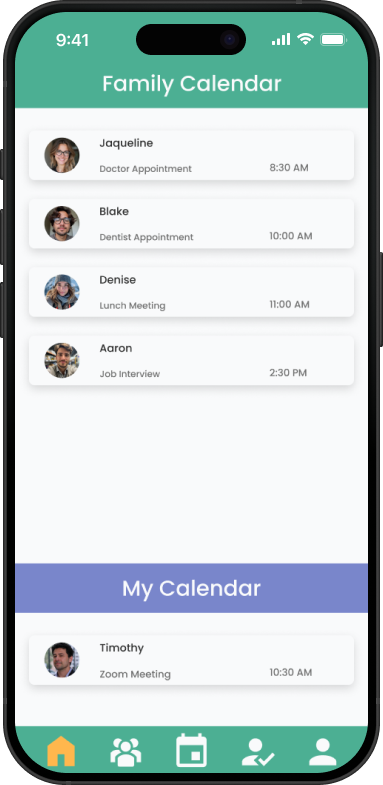
Overview
Family Planner is a scheduling assistant designed to help families stay organized by tracking everyone’s individual schedules in one place. This allows users to see availability across family members, reducing the likelihood of double booking and improving overall coordination.
Problem
Families struggle to stay on top of everyone’s schedules. Most use a patchwork of text messages, paper calendars, and verbal reminders—which often results in double bookings and forgotten events.
Goal
Family Planner is a centralized scheduling assistant that helps families manage, view, and coordinate everyone’s availability in one app. It reduces scheduling conflicts and supports better communication among family members.
User Persona: Emma
Emma is a full-time working mom who needs a simple and reliable way to manage her family’s events. She struggles with scattered tools, frequent double bookings, and last-minute surprises.
- Track her kids’ events, appointments, and coordinate with her partner.
- Overwhelmed by managing everything manually and missing events due to scattered reminders.
- A simple, reliable tool that keeps everyone in sync without micromanagement.
- Goals:
- Frustrations:
- Need:
Design Process
Wireframes
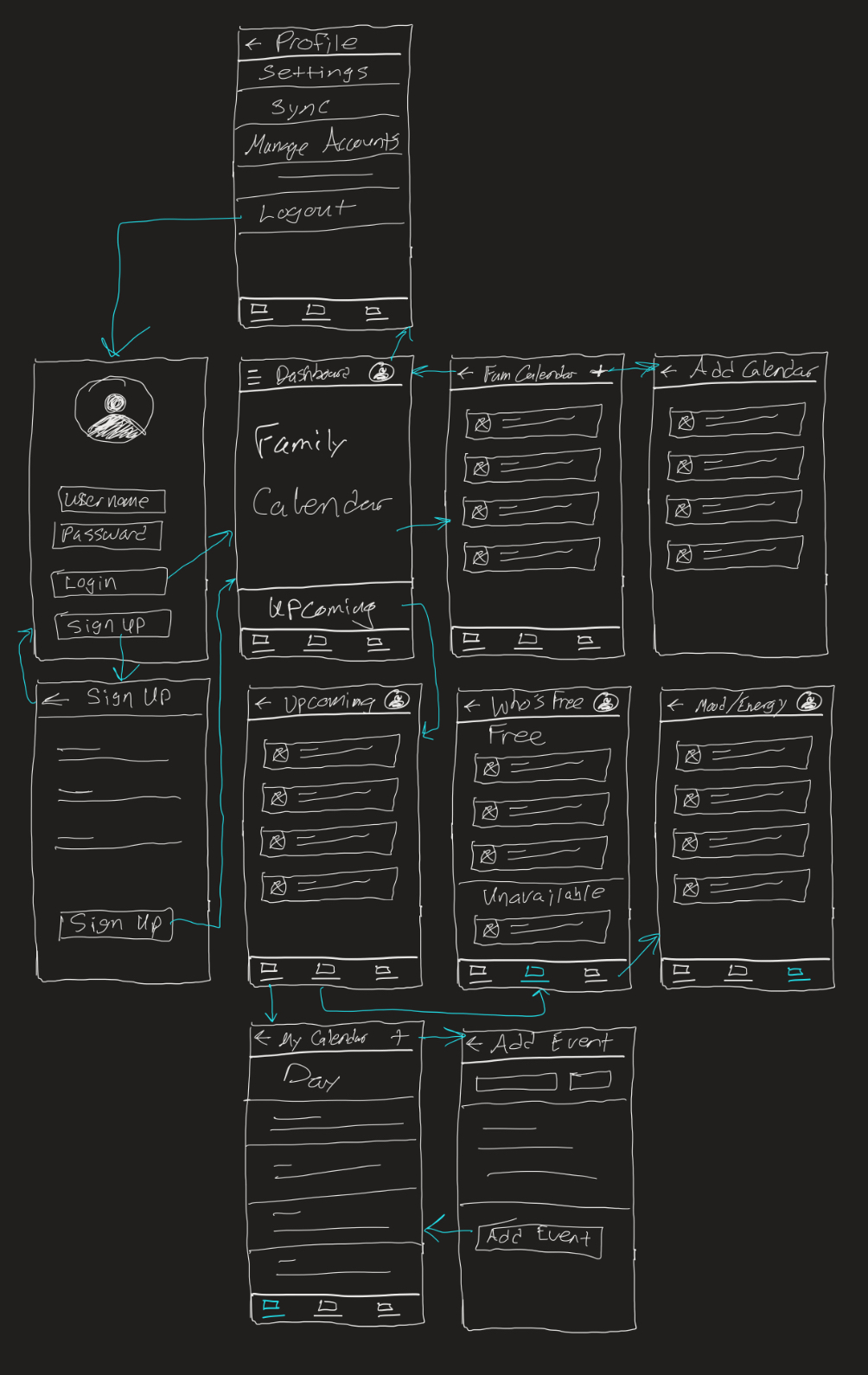
Rough sketch of an idea of what I wanted to be included in the app
Low Fidelity
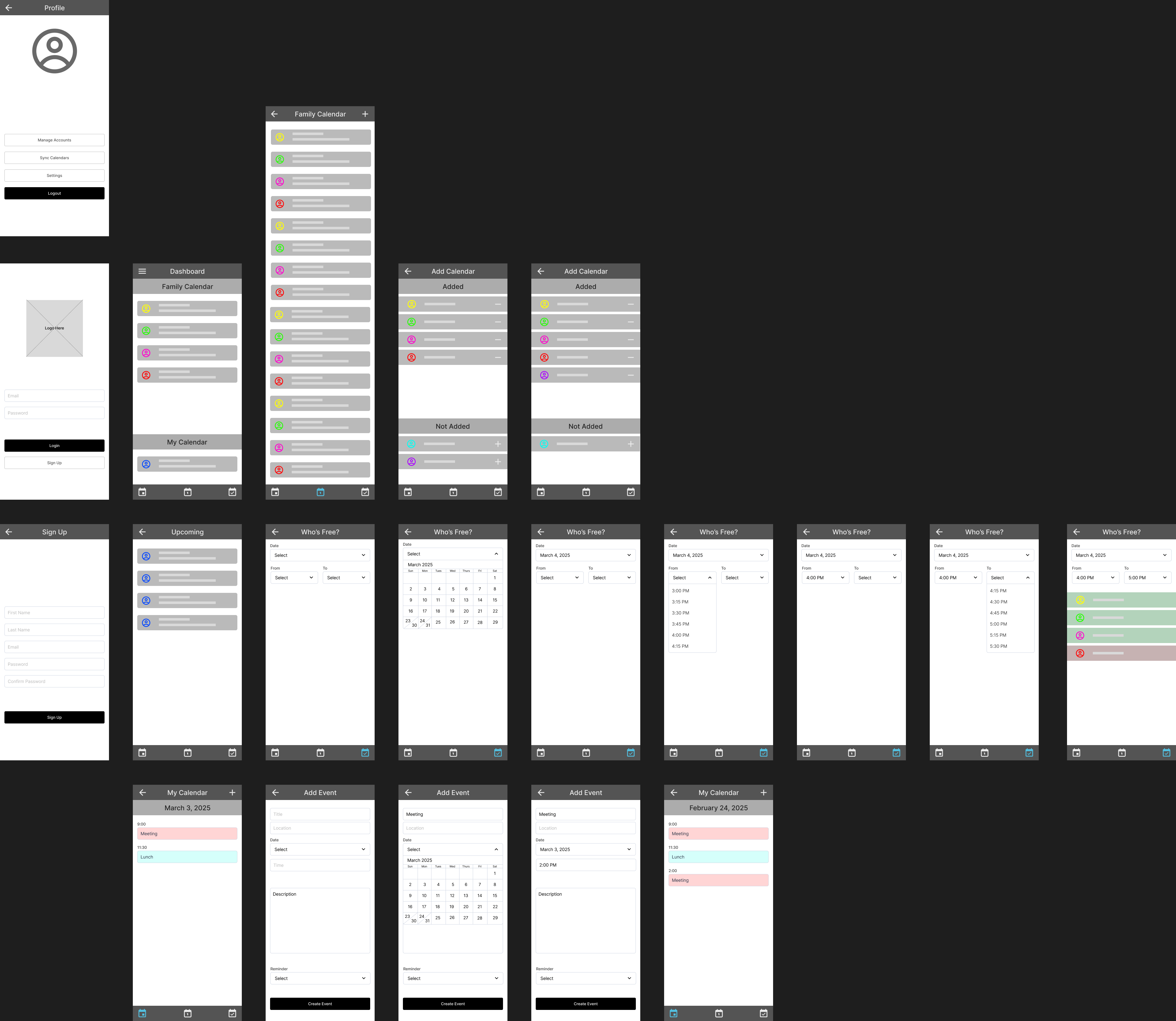
Started adding content in place of placeholders to show what the app would look like
Final Design
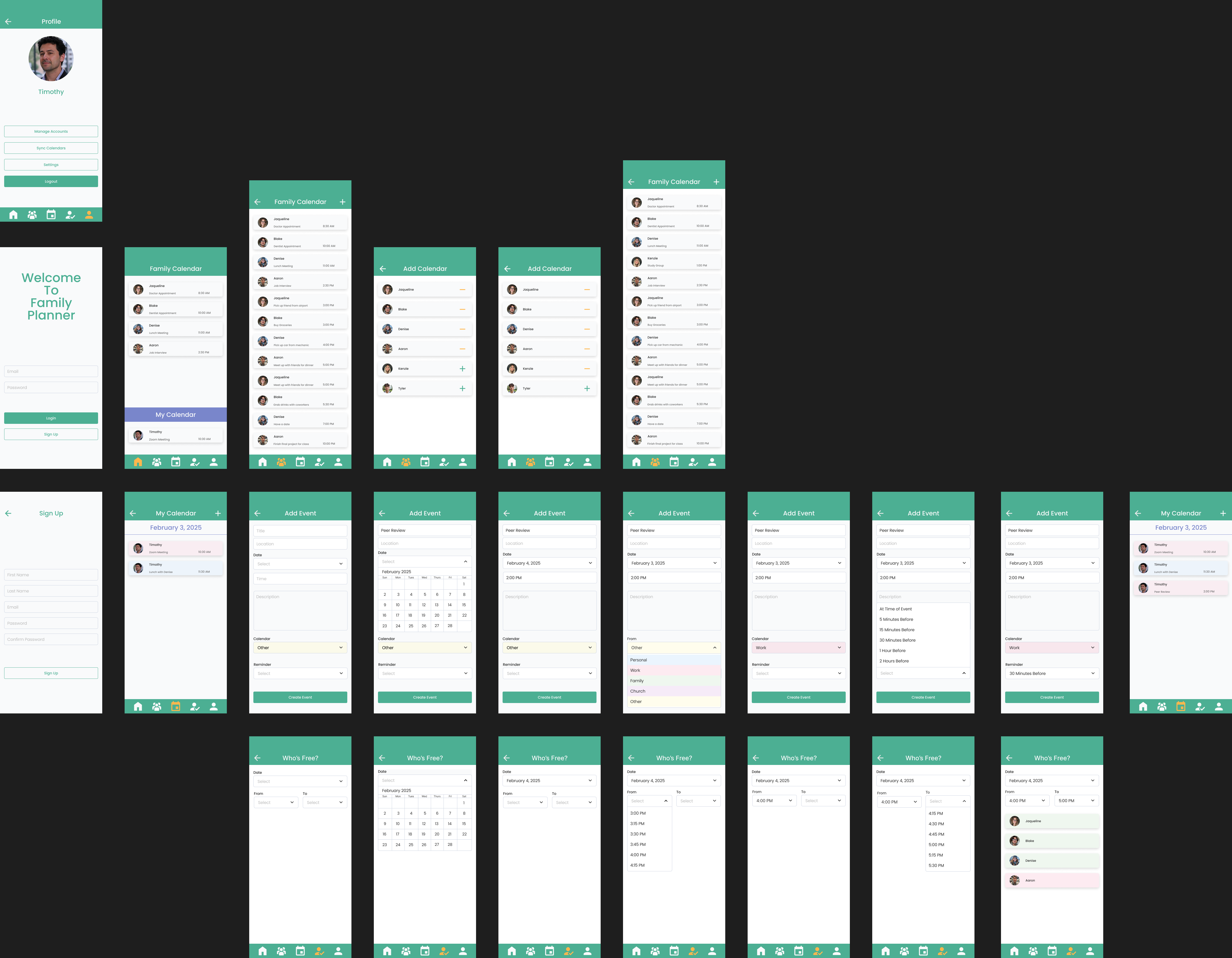
Polished design with actual content along with colors and pictures. Demonstrates interactive elements
Prototype
High-Fidelity UI
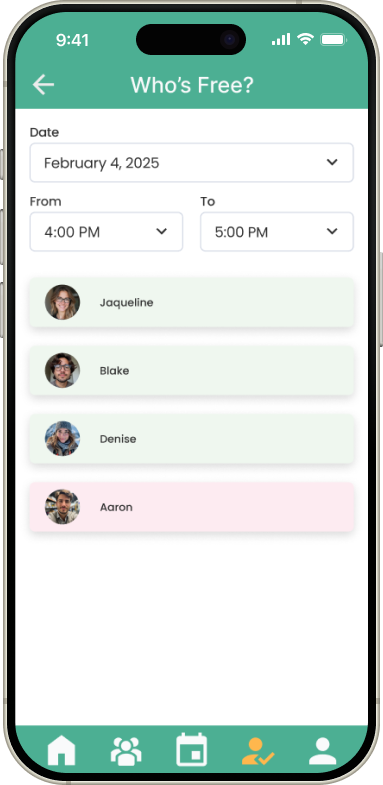
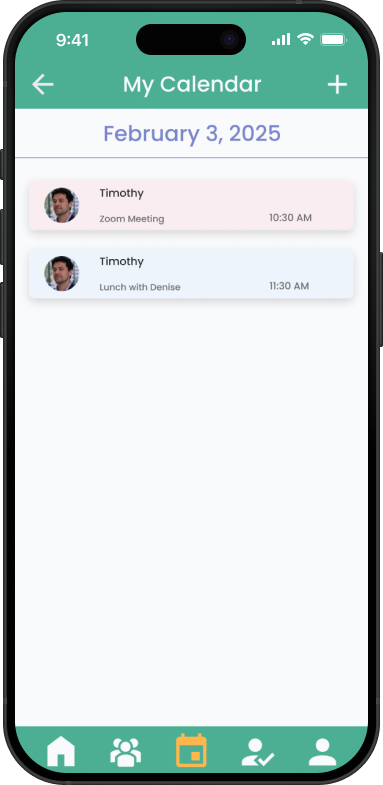
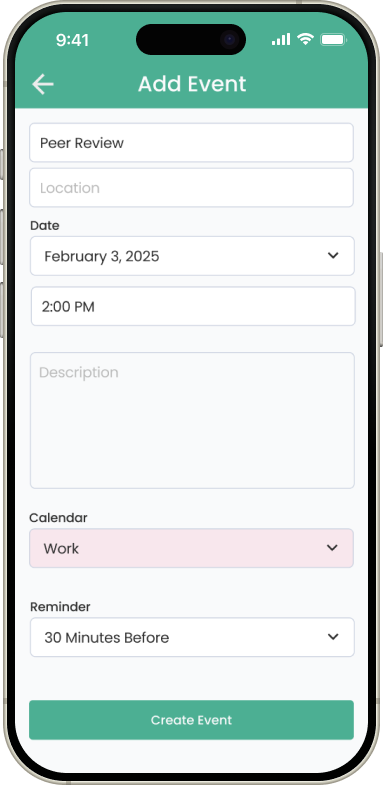
You can explore the final interactive prototype here:
View Interactive PrototypeAccessibility Considerations
- High color contrast for readability
- Touch-friendly tap targets for mobile users
- Clear hierarchy with headings and spacing
Reflection
This project helped me better understand the importance of designing with collaboration in mind. I learned how to simplify complex scheduling needs into a user-friendly experience and how to balance individual needs with a collective family view. It also taught me the value of user feedback in refining design decisions.